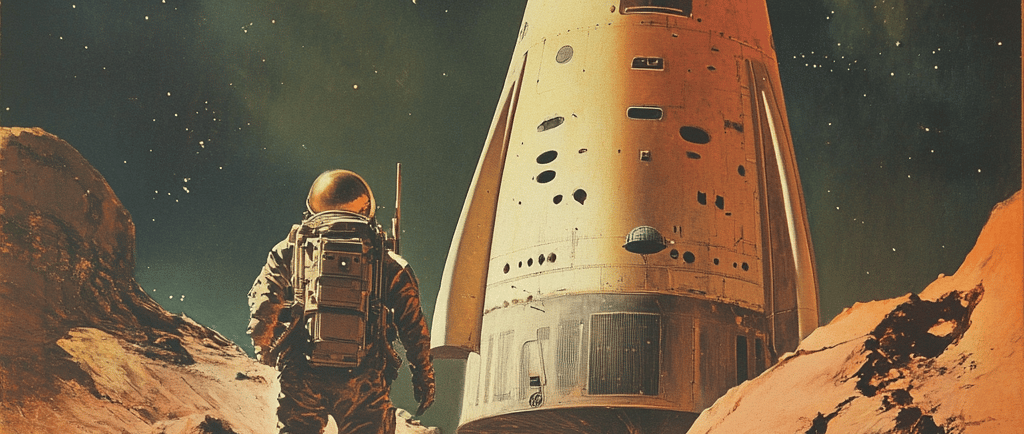First Human Landing on Mars
A mission guided entirely by AI successfully lands astronauts on Mars.
TIMELINE


Standing there, gazing up at the night sky, the stars seem to whisper secrets of distant worlds. I’ve always been captivated by the idea of exploration—of journeying beyond the familiar, crossing the thresholds into the unknown. But what if I told you that the frontier of human exploration has taken a monumental leap, and it's no longer just a distant fantasy? For the first time, a team of astronauts has set foot on Mars, guided entirely by artificial intelligence. It feels surreal, doesn't it?
This thought resonates deeply within me, igniting a flame of curiosity intertwined with a hint of apprehension. I mean, here we are, standing on the cusp of a monumental shift in our relationship with technology. As I consider the vast implications, I’m reminded of what it means to be human—to press the boundaries of what we believe is possible. I grew up fascinated by stories of space travel, of explorers like Neil Armstrong and Buzz Aldrin taking those iconic steps on the Moon. Now, we’ve crossed a threshold that once seemed insurmountable, and I can’t help but revel in the surrealism of it all.
The fact that AI is at the helm of this mission makes me reflect on both the promise and peril that accompany such advancements. Traditionally, the role of mission control was human—that palpable heartbeat of decision-making. But now, we’ve handed over that responsibility to algorithms, trained on vast datasets to anticipate and respond to challenges in real-time. I can hear the skeptics already, their voices tinged with a mix of awe and anxiety: Are we ready to trust machines with our fate interplanetary? It’s a question that echoes through my thoughts, interspersed with echoes of excitement for what AI could illuminate about our universe.
So what does this mean for us? For individuals like me who dream of adventure beyond Earth and for society as a whole? This mission could redefine our sense of possibility and push the boundaries of human achievement. Imagine a world where we expand not just to Mars, but to the moons of Jupiter, the rings of Saturn, and beyond. Collaboration between human ingenuity and AI could accelerate advancements in science, technology, and even philosophy; a shift that empowers us to ask profound questions about existence and our place in the cosmos.
Yet, as I revel in this vision, I can’t shake off a certain discomfort. Will we risk losing our individual agency in this partnership with technology? In trusting AI to navigate the complexities of space travel and human life, are we sacrificing the very essence of what makes us human? Or will this symbiosis inspire us, challenging us to rise to new heights we never thought achievable? I want to believe that this journey represents more than just exploration; perhaps it’s a reflection of our potential—how far we can go when we dare to dream together, human and machine.
As I contemplate these considerations, one last question lingers in my mind. What will it mean for humanity when stepping onto other planets feels as routine as boarding a plane today? Are we ready for the wonders and the challenges that lie ahead?
